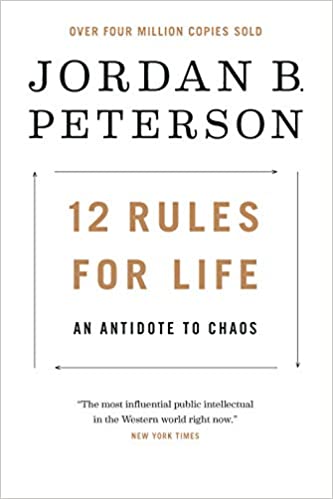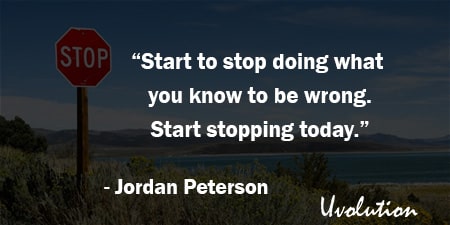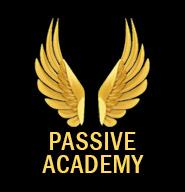12 Rules for Life by Jordan Peterson Book Summary
The Book in 1 Sentences
12 Rules for Life: An Antidote to Chaos
“How could the world be freed from the terrible dilemma of conflict, on the one hand, and psychological and social dissolution, on the other?
The answer was this: through the elevation and development of the individual, and through the willingness of everyone to shoulder the burden of Being and to take the heroic path.
We must each adopt as much responsibility as possible for individual life, society and the world. We must each tell the truth and repair what is in disrepair and break down and recreate what is old and outdated.
It is in this manner that we can and must reduce the suffering that poisons our world. It’s asking a lot. It’s asking for everything.
But the alternative—the horror of authoritarian belief, the chaos of the collapsed state, the tragic catastrophe of the unbridled natural world, the existential angst and weakness of the purposeless individual—is clearly worse.
I have been thinking and lecturing about such ideas for decades. I have built up a large corpus of stories and concepts pertaining to them. I am not for a moment claiming, however, that I am entirely correct or complete in my thinking.
Being is far more complicated than one person can know, and I don’t have the whole story.
I’m simply offering the best I can manage. ...
I hope that these rules and their accompanying essays will help people understand what they already know: that the soul of the individual eternally hungers for the heroism of genuine Being, and that the willingness to take on that responsibility is identical to the decision to live a meaningful life.
If we each live properly, we will collectively flourish.” ~ Jordan B. Peterson
7 BIG Ideas
3. Stand up straight with your shoulders back
5. Treat yourself like someone you are responsible for helping
12 Rules for Life Book Summary
1. The 12 rules for life
“It took time to settle on a title: 12 Rules for Life: An Antidote to Chaos. Why did that one
rise up above all others? First and foremost, because of its simplicity.
It indicates clearly that people need ordering principles, and that chaos otherwise beckons. We require rules, standards, values—alone and together. We’re pack animals, beasts of burden.
We must bear a load, to justify our miserable existence. We require routine and tradition. That’s order. Order can become excessive, and that’s not good, but chaos can swamp us, so we drown—and that is also not good.
We need to stay on the straight and narrow path. Each of the twelve rules of this book—and their accompanying essays—therefore provide a guide to being there. ‘There’ is the dividing line between order and chaos.
That’s where we are simultaneously stable enough, exploring enough, transforming enough, repairing enough, and cooperating enough. It’s there we find the meaning that justifies life and its inevitable suffering.”
Rule #1 Stand up straight with your shoulders back.
Rule #2 Treat yourself like someone you are responsible for helping.
Rule #3 Make friends with people who want the best for you.
Rule #4 Compare yourself to who you were yesterday, not to who someone else is today.
Rule #5 Do not let your children do anything that makes you dislike them.
Rule #6 Set your house in perfect order before you criticize the world.
Rule #7 Pursue what is meaningful (not what is expedient).
Rule #8 Tell the truth—or, at least, don’t lie.
Rule #9 Assume that the person you are listening to might know something you don’t.
Rule #10 Be precise in your speech.
Rule #11 Do not bother children when they are skateboarding.
Rule #12 Pet a cat when you encounter one on the street.
Learn more about these rules. Get your copy.
2. Managing Order and Chaos
“Order is not enough. You can’t just be stable, and secure and unchanging, because there are
still vital and important new things to be learned. Nonetheless, chaos can be too much.
You can’t long tolerate being swamped and overwhelmed beyond your capacity to cope while you are learning what you still need to know. Thus, you need to place one foot in what you have mastered and understood and the other in what you are currently exploring and mastering.
Then you have positioned yourself where the terror of existence is under control and you are secure, but where you are also alert and engaged. That is where there is something new to master and some way that you can be improved. That is where meaning is found.”
“To straddle that fundamental duality is to be balanced: to have one foot firmly planted
in order and security, and the other in chaos, possibility, growth and adventure. When
life suddenly reveals itself as intense, gripping and meaningful; when time passes and you’re so engrossed in what you’re doing you don’t notice—it is there and then that you are located precisely at the border of order and chaos.”
“‘No tree can grow to Heaven,’ adds the ever terrifying Carl Gustav Jung, psychoanalyst extraordinaire, ‘unless its roots reach down to Hell.’ Such a statement should give everyone who encounters it pause.
There was no possibility for movement upward, in that great psychiatrist’s deeply considered opinion, without a corresponding move down. It is for this reason that enlightenment is so rare.”
3. Stand up straight with your shoulders back
“To stand up straight with your shoulders back is to accept responsibility of life, with eyes wide open. It means deciding to voluntarily transform the chaos of potential into the realities of habitable order.
It means adopting the burden of self-conscious vulnerability, and accepting the end of the unconscious paradise of childhood, where finitude and mortality are only dimly comprehended.
It means willingly undertaking the sacrifices necessary to generate a productive and meaningful reality.
To stand up straight with your shoulders back means building the ark that protects the world
from the flood, guiding your people through the desert after they have escaped tyranny, making your way from comfortable home and country, and speaking the prophetic word to those who ignore the widows and children.
It means shouldering the cross that marks the X, the place where you and Being intersect so terribly. It means casting dead, rigid and too tyrannical order back into the chaos in which is was generated; it means withstanding the ensuing uncertainty, and establishing, in consequence, a better, more meaningful and more productive order.
So, attend carefully to your posture. Quit drooping and hunching around. Speak your mind. Put your desires forward, as if you had a right to them—at least the same right as others. Walk tall and gaze forthrightly ahead.
Dare to be dangerous. Encourage the serotonin to flow plentifully through the neural pathways desperate for its calming influence.”
4. Routines are important
“The body, with its various parts, needs to function like a well-rehearsed orchestra. Every system must play its role properly, at exactly the right time, or noise and chaos will ensue. It is for this reason that routine is so necessary.
The acts of life we repeat every day need to be automatized. They must be turned into stable and reliable habits, so they lose their complexity and gain predictability and simplicity.
It is for such reasons that I always ask my clinical clients first about sleep. Do they wake up
in the morning at approximately the time the typical person wakes up, and at the same time every day? If the answer is no, fixing that is the first thing I recommend.
It doesn’t matter so much if they go to bed at the same time each evening, but waking up at a consistent hour is a necessity. Anxiety and depression cannot be easily treated if the sufferer has unpredictable routines. The systems that mediate negative emotion are tightly tied to the properly cyclical circadian rhythms.”
5. Treat yourself like someone you are responsible for helping
“You need to consider the future and think, ‘What might my life look like if I were caring for
myself properly? What career would challenge me and render me productive and helpful, so that I could shoulder my share of the load, and enjoy the consequences? What should I be doing, when I have some freedom, to improve my health, expand my knowledge, and strengthen my body?’
You need to know where you are, so you can start to chart your course. You need to know
who you are, so that you understand your armament and bolster yourself in respect to your
limitations. You need to know where you are going, so that you can limit the extent of chaos in
your life, restructure order, and bring the divine force of Hope to bear on the world.”
6. Start stopping today!
“Consider your circumstances. Start small. Have you taken full advantage of the opportunities
offered to you? Are you working hard on your career, or even your job, or are you letting
bitterness and resentment hold you back and drag you down?
Have you made peace with your brother? Are you treating your spouse and your children with dignity and respect? Do you have habits that are destroying your health and well-being? Are you truly shouldering your responsibilities? Have you said what you need to say to your friends and family members?
Are there things that you could do, that you know you could do, that would make things around you better?
Have you cleaned up your life?
If the answer is no, here’s something to try: Start to stop doing what you know to be wrong.
Start stopping today.
Don’t waste time questioning how you know that what you’re doing is wrong, if you are certain that it is. Inopportune questioning can confuse, without enlightening, as well as deflecting you from action. You can know something is wrong or right without knowing why.
Your entire Being can tell you something that you can neither explain nor articulate. Every person is too complex to know themselves completely, and we all contain wisdom that we cannot comprehend.
So, simply stop, when you apprehend, however dimly, that you should stop. Stop acting in that
particular, despicable manner. Stop saying those things that make you weak and ashamed.
Say only those things that make you strong. Do only those things that you could speak of with
honor.”
7. Being is process, not a state
“There is no enlightened one. There is only the one who is seeking further enlightenment. Proper Being is process, not a state; a journey, not a destination. It’s the continual transformation of what you know, through encounter with what you don’t know, rather than the desperate clinging to the certainty that is eternally insufficient in any case.
That accounts for the importance of Rule 4 (Compare yourself . . .). Always place your becoming above your current being. That means it is necessary to recognize and accept your insufficiency, so that it can be continually rectified.
That’s painful, certainly—but it’s a good deal.”
That was my QUICK summary of the great book 12 Rules for Life by Jordan Peterson. If you’re interested, get your copy. There is a HUGE amount of life-changing ideas in this book, and we’ve only touched on a tiny bit of it.
Buy The Book: 12 Rules for Life by Jordan Peterson

GET Blinkist 7 Days FREE Trial
3000+ Book Summaries
(Audio and Text)








